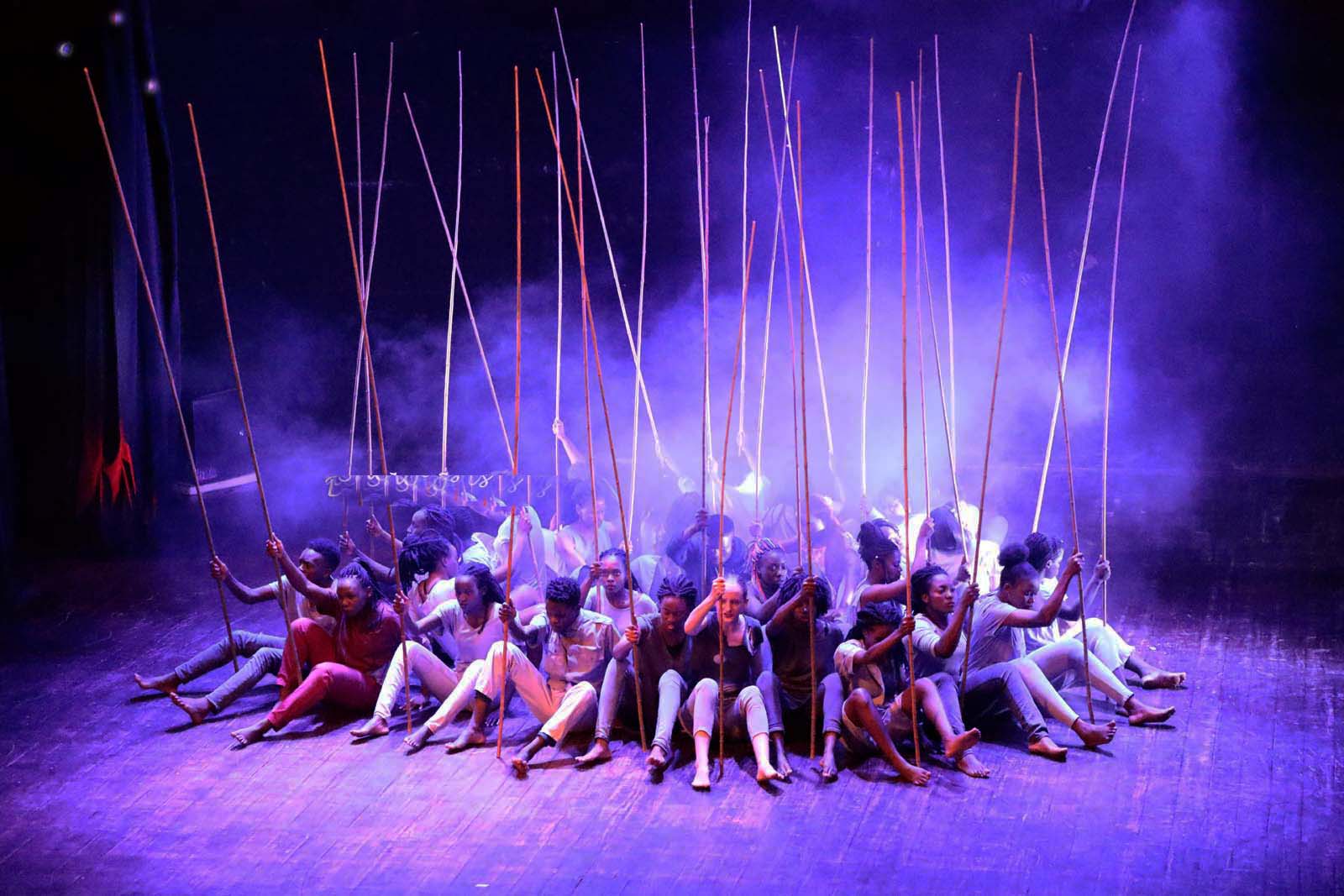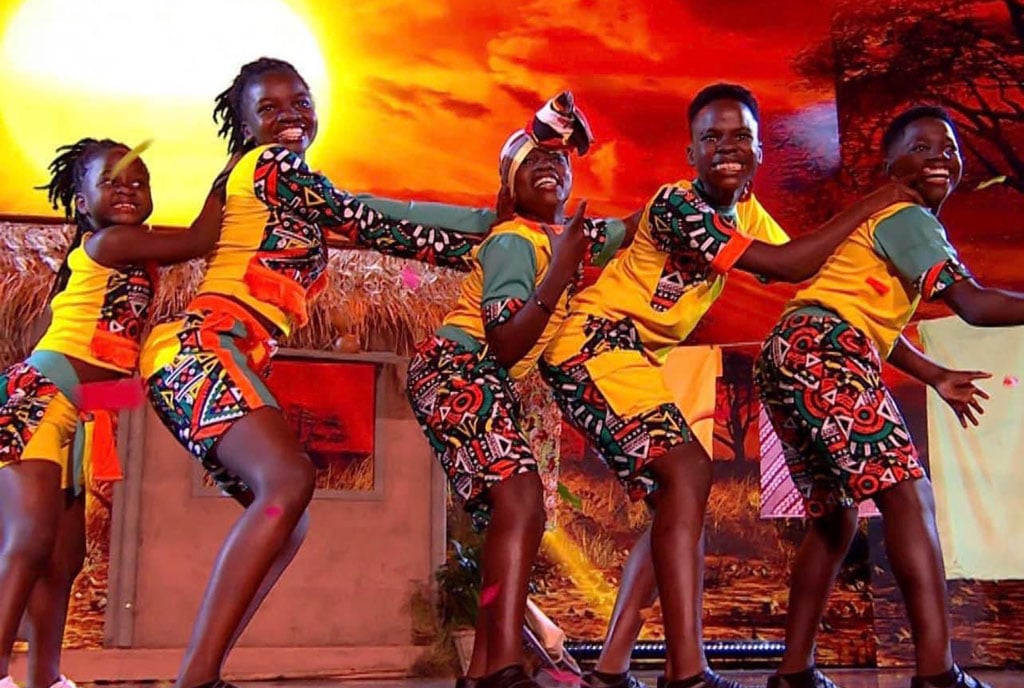Prime
Inside Uganda’s journey to global stage of dance

Triplets Ghetto Kids perform on the final of Britain’s Got Talent series 16 on Sunday. PHOTO | COURTESY | DYMOND THAMES
What you need to know:
- The creative. London was swayed by the Ghetto Kids who showcased their dancing skills at Britain’s Got Talent, announcing Uganda’s potential in the global dance industry. Uganda has been an underrated dance super power that is yet to realise her own potential, writes Gabriel Buule.
Uganda’s dance ensemble the Triplets Ghetto Kids, better known as Ghetto Kids won hearts of art enthusiasts as they got a direct pass from the auditions stage in 2023 Britain Got Talent (BGT) competitions.
Former dancer judge Bruno Tonioli, gave them a golden buzzer that sent them to the semi-finals.
After five nights of live performances in the semi-finals, BGT series 16 came to a climax last Sunday with Norwegian comedy performer Viggo Venn being announced the overall winner.
The group of six youngsters, came out top in the public vote on BGT to join other youngsters that included; Welsh singer Travis George among others.
The Ghetto Kids nearly brought the big prize home having won over the judges and the public with their organic dance moves.
All was not lost since the Ghetto Kids made history after becoming the first act to be given a golden buzzer midperformance.
They joined several Ugandans who have carried dance to the world stage, putting up incredible acts and winning prizes.
On May 8, a group of Ugandans were flagged off to attend the maiden continental Africa breaking championship in Morocco (Rabat city) in a championship which is also a qualifier to the Paris 2024 Olympics.
Uganda’s representatives include; Ronald “Bboy Ndwaula” Ndawula, Samuel “Bboy Saman” Ziraye, Steven “Bboy Pencil” Opio, Fahadhi “Bboy Fahadhi” Kiryowa, Faruk “Bboy Skoolboy Faruk” Luleti and Frank “Bboy Jogo” Kimuli.

Clay Dancers celebrate 10 years of dance at National Theatre, Kampala. Photos | Gabriel Buule.
Uganda has been dancing
Dance choreographer Abdul Muyingo alias Abdul Abdanger explains that Uganda is synonymous with dance and the country has participated in a couple of premium international dance arrangements.
He says that the issue is that dance has not been marketed well in Uganda as compared to other artistic genres like music and film which suffocates its progress.
“Dance is among Uganda’s oldest artistic genres, in Uganda we dance when we are happy and also mourn with dance. It is an artistic genre that is part of our heritage,” he explains.
The proprietor of Batalo Dance company, Muyingo notes that Uganda needs to needs to give a dance priority since it creates jobs and it can be used to market Uganda at a global scale.
In similar manner, choreographer Walter Ruva alias Uncle Walter of Katuuyo Dance Project, says that the presence of Uganda at Britain Got Talent is a reminder for Uganda to promote the dance sector that has for years been neglected.

Dancer Lilian Nabaggala showcases Nambi, an art piece at 2018 Batalo festival.
He reveals that every year, dance is the most exported art genre though not documented by the country.
“Uganda dance troupes perform in China, Asia and most parts of Europe. This is a trend that must interest decision makers since dance is contributing to the country’s GDP,” he explains.
Uncle Walter adds that besides creating jobs for the youth, dance can be a tool for promoting tourism and heritage among the people of Uganda.
He shares that the history of Uganda’s dance runs through the heritage of people where a specific dance genre hails from.
“Just like music, the history of dance in Uganda is inclined to tribes and ethnic groups where a specific genre comes from and it constitutes one of the most revealing forms of expression of our day today lives,” he adds
Uganda and Dance Competitions
Muyingo mentions that in 1986, 16-year-old Isaac Nyakojo alias Sande Mobile won the Malibu World Championships in London. The incredible youngster swayed judges with Break-Dance strokes to reign supreme in the entire world.
This came after Martin Sempa now a prominent pastor had won the East African break-dance competitions in 1984.
Sempa recalls registering the competition as a participant to earn a free entry ticket to the show whose entry was at a fee in Makerere, then Norman Theatre (now Watoto) and in Jinja.
The young Sempa whose dream then was to be a priest later picked interest and started training under his friend Moses Nakyon.

Performance. Kuhamahama Episode is one of the pieces to be showcased.
Sempa recalls that he participated with then dancers Isaac Rucibigangu, aka, Ruci (now a musician), Philip Odida (now a lawyer), Timothy Kalyegira (now a seasoned journalist and writer).
“I did not have money to watch the dance and I registered as a competitor and I won at national and later East African level,” he recalls.
Later, another Uganda, Mike Ezra Semakula won the same breakdance championship.
Other Ugandans who have starred in competitions at global level include Faizal Ddamba Mostrix, a finalist at Hustle Debout in France, Abdanger, won Best Afro Haus World Best African Dance Championships in Berlin, Germany.
A representative of Uganda at several dance festivals, Martha Nabwire hip-hop world champion of 2010 is also the winner of the 2010 Juste Debout hip hop dance competitions in France.
Premiered in 2015, ILL-Legitimate is among the famous dance projects that has been showcased in various parts of the world.
Choreographed by Muyingo and danced by a group of young dancers called the Tiny Free, the piece launched during the Batalo Dance Fest of 2015 focuses on child labour and trafficking around the world.
Other famous dance pieces include Uncle Walta ’ Dance choir Mu Kirombe a dance piece on youth unemployment, Elvis Elisa’s Sukaali about Child marriages, Batalo’s Sisobola Kusa on climate change among others.

Activism. Dancer performs an eco piece dubbed sisobola kusa on climate change awareness.
Dance competitions in Uganda
Uganda has a couple of Dance competitions that happen at annual basis. Among the many, Break-Fast Jam and Batalo Dance festival are the most popular.
Break-Fast Jam is designed to cater for hip-hop archetype whose overall imperative is giving a different dimension to the breaking culture in Africa.
Although it focuses on breaking it concurrently brings together all elements of the hip-hop culture by providing a platform to practitioners from other aspects of the culture as well.
For Batalo East focuses on the basis of building a bridge between traditional and urban dance, encouraging young people and dancers to value and incorporate traditional African art forms into their lives and artistry, alongside their development as global citizens and artists on the international stage.
Muyingo the organiser says that traditional dance is a cultural mainstay in Africa, and an important component of the social fabric of more than 40 ethnic groups across Uganda and their purpose is to preserve and develop traditional African dance as a part of this fabric are increasingly at risk.
Other dance competition arrangements include; Skillz East Africa, SDF Street Cypher battle in Jinja, Floor Motion in Gulu, Hit the beat battles in Jinja, Pop lock funk poppin dance battles and Hip-Hop for Society dance battles in Kampala
The child dancers
Dance is becoming a paramount tool to inspire children to talent and education. Several dance groups have been created in children homes, care centres and schools to inspire dance.
Besides Ghetto Kids, there are other famous children dance groups that include; Masaka Kids, Namuyomba Comedy, African Hope, Yala African Kids Ug Dancing Group, and Sosolya Undungu Dance Academy Centre for Children and Youth.
Walter says that the success of ghetto Kids will inspire many child dance groups and it offers hope for development of dance due to the involvement of the young generation.
The dances of Uganda
Muyingo shares that Uganda’s heritage is defined by many aspects but dance takes a paramount position in defining Uganda’s heritage.
He says in Uganda, people dance to celebrate marriage, harvest, war, worship, ritual, social gatherings ,among others.
He highlights that traditional dances have influenced the evolution of dance where by many choreographers fuse traditional and urban to come up with amazing dance pieces. In this manner, Muyingo mentions dancer Faisal Ddamba Mostrixx who has thrived on urban dance skills which he fuses with traditional to represent Uganda across the globe.



